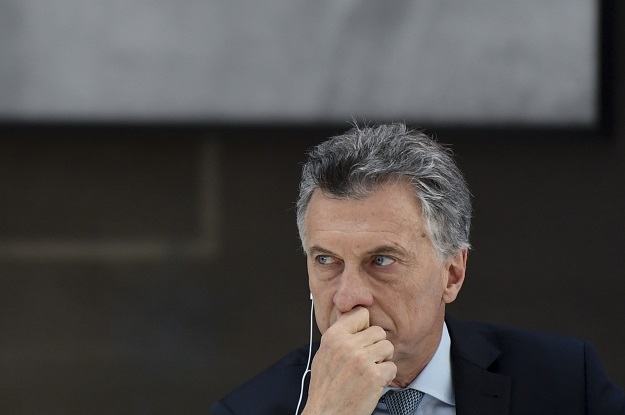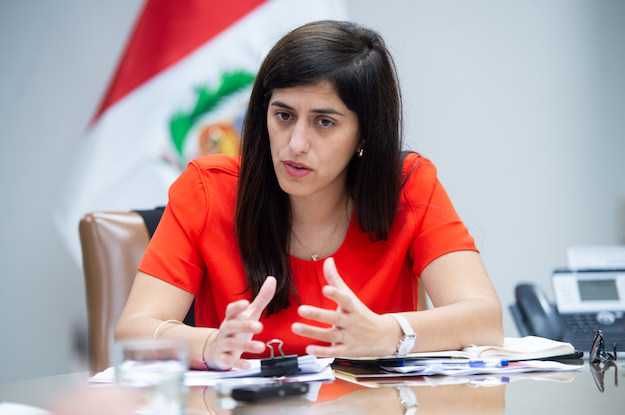The eyes of the world are on Argentina, the first South American nation to host a G20 meeting. While the event was expected to be an opportunity for President Mauricio Macri to show off Argentina’s resurgence, he instead finds himself in the background. As Chinese President Xi Jinping and his U.S. counterpart Donald Trump spat over trade, a list of who’s who among global leaders has prompted the largest security apparatus Buenos Aires has seen. The postponement of the historic final game of the Libertadores Cup has added another layer of drama to this week’s proceedings.
All this may ultimately be a welcome distraction for Macri as he works to steady an economy with an inflation at 45.9 percent and interest rate above 61 percent. The crisis that led the peso to lose half its value in a matter of months earlier this year has seemingly calmed after a pumped up IMF package sped up the disbursements of a $57 billion credit line. But a market truce has no guarantees, and the credit rating agency Standard & Poor’s downgraded Argentina’s bonds earlier this month, meaning its default risk might be increasing. Signs of health coming from the agricultural sector – one of the culprits of the crisis due to a severe drought that thwarted grain production and exports – are encouraging. But once the G20 spotlight leaves the country, Argentina will still be left with high inflation, squeezed credit and social unrest – and all of that going into an election year.
Martín Castellano, head of Latin America research at the Institute of International Finance, spoke with AQ about Argentina’s economy as it heads into 2019. This interview has been edited for brevity and clarity.
AQ: Argentina’s Congress approved a 2019 budget that includes austerity measures agreed upon with the IMF – measures that will be implemented throughout an election year. Can you give us the context in which Argentina is preparing to enter 2019?
Castellano: I think it was a very good signal to have the opposition on board in approving next year’s budget. That is very important for investors, not only for the improvement of the country’s fiscal position itself but also for showing that there is support for prudent policies despite next year’s election. The adjustment in the budget included both the revenue and expenditures, but now the key issue is implementation. That is going to be very relevant to ensure the IMF keeps disbursing the money.
The renewed agreement with the IMF increased the amount of the loan and included an earlier schedule for its disbursement. That helped ease the external financing that Argentina needs for this year and next. The agreement also revamps the country’s monetary policy framework. Having an inflation target hasn’t been very successful for Argentina, and they are moving to control the money supply. In my view, this is better for this transition phase and will help stabilize financial conditions and gradually reduce inflation. But implementation of a fiscal adjustment in an election year is not going to be easy. It is a very ambitious program by any standard, especially in comparison to what the country has done in the past or to IMF agreements with other countries.
AQ: The scenario is still of a recession going into 2019. The market may be more hopeful, and agriculture is showing signs of improvement after the severe drought that plunged production. Still, high interest rates hinder investments and inflation is hurting consumers. What are the steps apart from reining in expenditures to turn the economy around and into growth?
Castellano: For domestic consumption, it is going to another tough year. We are probably not going to see increases in real wages. The main driver of growth will come if the government is able to regain market and consumer confidence, but it is still an open question. Monetary policy is very tight now, though it has eased recently. Still, we are talking about high interest rates in real terms.
As the financial conditions stabilize, the Central Bank should find more room and we could see a reduction in interest rates going forward. And as you mentioned agricultural production is set to recover next year. On the fiscal side, even though there will be a negative impact from lower public spending, a positive impact can come in the form of private sector confidence, particularly investors. Seeing the government taking care of the fiscal position could be a source of stimulus next year. Another factor that will help is the exchange rate which is much more competitive now and is going to help some specific sectors of the economy.
AQ: With inflation where it is, will it be hard for the government to keep popular support?
Castellano: We’ve seen a stark adjustment in the peso, which translated to an acceleration in inflation. Still, dollar purchases by locals in the market have eased very little so far. The key challenge for the government and its economic policy is to show that they are in the driver seat. That is going to help recreate confidence. What happens on the political front is going to be very important. Investors are looking at the next administration, if it will be Macri, someone from his camp or someone else, and what kind of policies are going to be in place. They will be watching the political debates and primaries very carefully and looking for signals of continuity. The next administration will have to deal with the IMF agreement, and those signals are going to be very important for recovering confidence.
AQ: We have a “wait and see” scenario with international investors. We have domestic investors grappling with high interest rates. Consumers are living with high inflation and stagnated wages. Will the IMF be the only pillar supporting Argentina in 2019?
Castellano: It isn’t that. We have already seen a significant adjustment, and the equilibrium is now totally different compared to the beginning of the year in terms of sustainability and growth prospects. I think there are factors that are going to help. But it is definitely going to be a rough year.
AQ: When we will see economic growth? 2020?
Castellano: It probably will pick up before that. On average we may see negative growth next year, but by the second or third quarter of 2019 we are probably going to see a recovery. The timing is not clear … but it could even be before the election.







